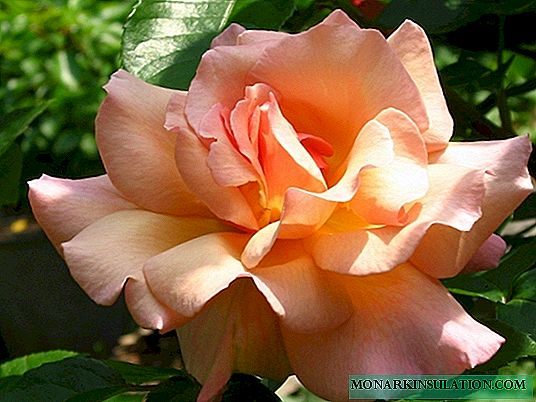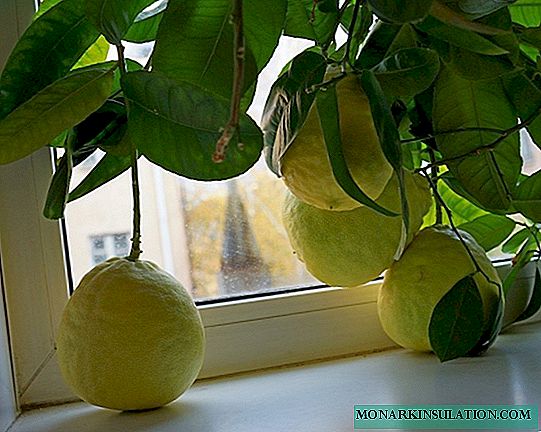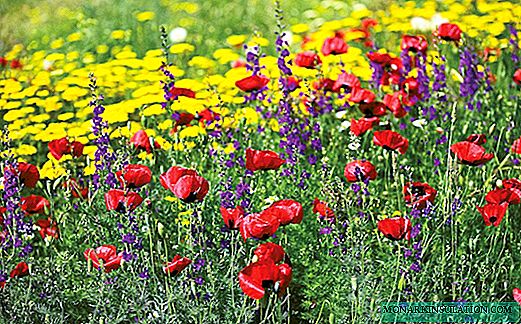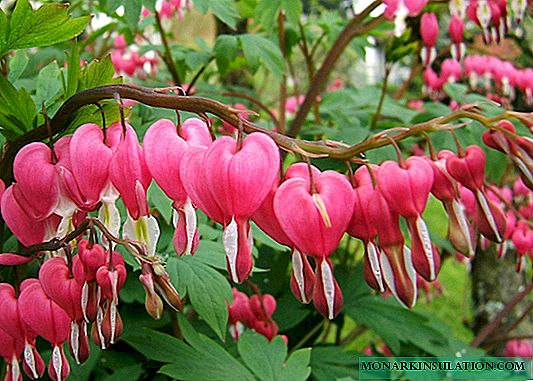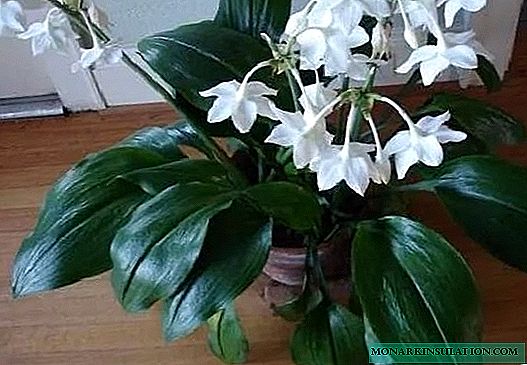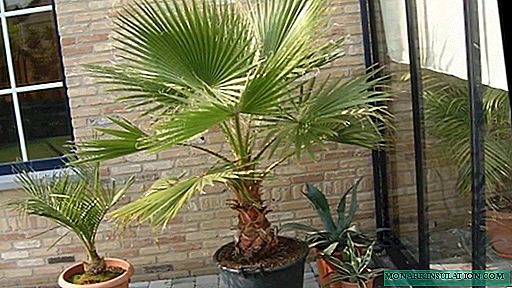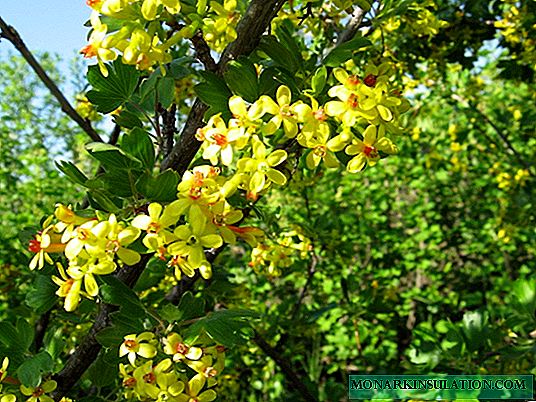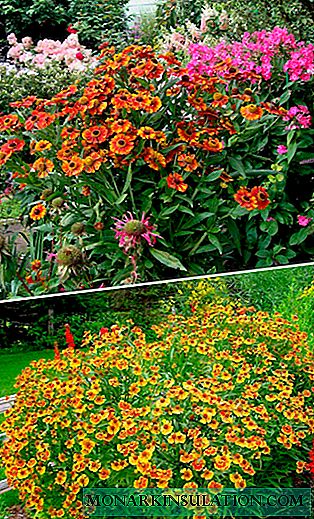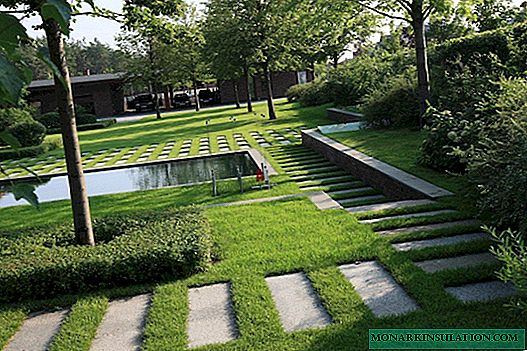
Simplicity, conciseness and versatility are the key touches of the Scandinavian style, which has become widespread in landscape design. A popular direction for arranging personal plots originated in the northern countries, for the peoples of which the main task was to create a cozy and harmoniously combined with nature garden that can withstand the weather. The climate and topography of these regions have characteristic differences. But in the design of personal plots of the inhabitants of the peninsula, it is easy to find common features. Which ones - read on.
What is characteristic of the Scandinavian style? The main feature of this direction is close unity with nature and a life-affirming mood. Thanks to this, the Scandinavian-style landscape has a pleasant rest and at the same time energizes and invigorates.

Scandinavian style successfully combines the trends and styles prevailing in the northern regions of Scandinavia: Denmark, Sweden and Norway

The Scandinavian style is characterized by natural simplicity, which borders on strict restraint of design, and functionality
But at the same time, the arrangement of the site in the Scandinavian style involves the use of saturated rich colors. In conditions of shortage of daylight and the harsh long winter characteristic of the North, light colors and bright colors help to make the garden more comfortable and light.
Key elements characterizing the Scandinavian style:
- Open floor plan;
- Fences from hedges instead of fences;
- Containers with flowers instead of flower beds;
- Cobbled rectangular platforms;
- Natural clearings and oases with wild plants;
- Unframed lawns without flower beds;
- Artificial pond of irregular shape;
- The presence of a heather garden.
In the design of the Scandinavian site, you will not find artificial decorations. Instead, the garden is decorated with large stones and boulders distributed over the site at first glance without a special system. All elements of landscape design are distinguished by clear lines and the correct geometric shapes.

Heather gardens help provide unity with nature - lovely oases that effectively emphasize the tenderness and lyricism of the landscape.
A good addition to the heather garden can be a small garden, consisting of only a few neatly decorated beds. To support the styling, the beds can be framed with wooden frames, and the aisles between them can be decorated with gravel.
The main advantage of Scandinavian design is the ability to create a picturesque Nordic corner, even on a small piece of land. Most of the bushes and flowers that are used in the design of the Scandinavian sites, it will not be difficult to find in our latitudes.
Selection of plants for such a garden
It is hard to imagine a Scandinavian garden without evergreens. The main decoration of the homestead territory are pines, junipers, spruce and pyramidal arborvitae. Scandinavian multi-tier flower beds replace all kinds of floor pots and flowerpots. Hydrangeas, yews, boxwoods look spectacular in containers.

Unpretentious in the care of boxwood perfectly pruned. Their crowns can be given original pyramidal and round shapes.
A gazebo or a relaxation area can be planted with climbing plants. Ideal for these purposes: curly beans, hops, morning glory, ivy, clematis.
Miniature greenhouses are also characteristic of the Scandinavian garden, under the arch of which heat-loving decorative plants are grown.

When creating floral arrangements, the most popular are: lavender, rhododendron, peony, poppies and daisies, as well as any wildflowers
Elegant lawns of phlox, asters, calendula and flax, like islands, now and then found in different parts of the garden. These joyful oases give a special charm to the Nordic garden. And the atmosphere of the Scandinavian tribes will help create semi-wild cereals.
For arranging stony gardens, they are ideal: a Carpathian bell, Alpine cloves, sedum and creeping gypsophila.

The perimeter of the site is often framed by trees. Mixed plantings of lilac, birch, aspen, fir and pine look unusually picturesque
When choosing plants, one should be guided by the principle that the general view of the garden should remain discreet and simple, and only its individual elements can stand out with bright colors.
Small architectural forms
Wood and stone are the main materials for the arrangement of the territory. The arrangement of the site in the Scandinavian style is aimed at creating a cozy and truly comfortable corner for a pleasant stay. In the design of such sites must have open gazebos.
You can learn about how to build a gazebo for a summer house from the material: //diz-cafe.com/postroiki/besedki-dlya-dachi.html

Spacious areas and cozy gazebos are equipped on wooden floors and equipped with wooden benches or deck chairs
The Scandinavian style is inherent in the abundance of stone objects. Large boulders and stone figures adorn not only the garden, but also the front part of the territory.

Lumps of unprocessed wild stone scattered in a somewhat chaotic manner around the site help to reflect the elements of culture and style inherent in the northern regions
Artificial grottoes are another characteristic feature of the style. They are built of stones and decorated with flowering ground cover plants.

Stone fireplaces - decorative constructions that are made of medium-sized stones, also help to give the site of northern traditions
If desired, more functional bonfires can also be laid out from stones. And then gatherings around the campfire will become one of the favorite pastimes on cool evenings.
Design in the Scandinavian style involves the use of utensils and household items from the past. Clay pots, ceramic and straw figures, colored watering cans, crudely made tubs, cart wheels - all these household items can be involved in decorating the site.
It will also be useful material on how to make jewelry for giving from unnecessary things: //diz-cafe.com/dekor/idei-dlya-dachi-svoimi-rukami.html

Antique objects or their high-quality imitation are able to create that unique atmosphere of a cozy and unusually picturesque site
A spectacular addition to the exterior will be wicker items: screens, flowerpots, coasters, stylized garden figures and baskets. To give the site bright touches, garden figures (Vikings, trolls, gnomes) and individual exterior items are painted in red, blue or orange.
Arrangement of a decorative pond
As a frame for a decorative pond, the same stones and hygrophilous plants are used.

A necessary attribute of the northern garden is a small waterfall or decorative pond, the water surface of which is decorated with graceful beauties lilies
If on the site there is no opportunity to equip a pond, you can bring notes of water elements to the atmosphere by setting a high tub with water.
Garden furniture with character
The harmonious combination with nature helps to provide wooden elements of garden furniture.

Against the background of colorful lawns with fragrant flowers, rough garden benches from ordinary hewn logs look picturesque
The so-called container shops, in which it is convenient to store all kinds of garden tools, were widely used in the arrangement of plots. Thanks to these convenient functional structures, the Scandinavian gardens are also referred to as “container gardens”.
Original gardening and bizarre shapes and driftwood help to give expressiveness to the image.

Wicker furniture is no less popular element of the Scandinavian style. It successfully combines an interesting design and ease of use.
When arranging a site, wicker chairs, deck chairs and tables are most often not set up in open areas, but they choose shady corners for them under the crowns of trees.
Scandinavian style is, first of all, a successful combination of small details that create a single image full of harmony and perfection.

